Although the organizers of The Book Fair of Havana, held from February 9 to 19 in the old fortress of La Cabaña, sent the texts to the provincial bookstores where they will continue the sales and presentations, the event is now part of the past because the capital’s publishers finalized their rituals of promotion and the exhibitors and foreign guests returned home, among them the Brazilian theologian Frei Betto, author of Love fertilizes the universe, who, after his discourse on poverty and the responsibility of the United States for the problems of the world, got in his Mercedes Benz and went to his suite at the luxurious Hotel Melia Habana, located in the exclusive neighborhood of Miramar.
Betto, Ramonet and other intellectuals from Europe and America who attended the Fair exemplify the syndrome of the ideological as an element of legitimacy, marked by works that ratify the discourse of the left, clinging to power in this island for half a century. Books and brochures such as the Second Declaration of Havana, Making a revolution within the revolution, by the deceased Vilma Espin, Asela de los Santos and Yolanda Ferrer; libels from or about Fidel Castro, Ernesto Guevara and Hugo Chavez, and even reprints of Trotsky.
After visiting the booths of The Book Fair, dedicated to the essayists Zoila Lapique, Ambrosio Fornet and Caribbean cultures, it’s worth nothing that the Fair seems like carnival around the walls of the colonial fort and prison, now recycled to host cultural events, where the price of books promote the greed of the thousands of attendees who bring their children to eat and watch the city from the hill, fanned by breezes from the sea, where the medieval streets offer kiosks and restaurants.
This annual festival of Cuban authors and publishers, is an event that excludes those writers who criticize the Cuban authorities, which justifies the absence of the classics of our literature and of creators marginalized by the network of publishers affiliated with the Cuban Book Institute, which prints hundreds of titles on the revolution, socialism, anti-imperialism and other isms that the moths feed on from the shelves.
While the presentations, discussions, tributes and discussions were marked by norms, pacts of silence and euphoria, there was everything. The 2011 National Prize was awarded to Esther Acosta and the National Design Award to the painter Peter Oraá, delivered on Monday the 13th in the Nicolas Guillen Room.
The 2011 David Awards were awarded to Quadrivium, by Alejandro Machado (narrative), a work that outlines “ways in which images, stories, reflections and rewriting of myths and violent fables of knowledge that force the language of the referential.”
Poetry went to The unfinished novel of Bob Kippenbergergby Larry Gonzalez, captured by “the desire not to be descriptive, nor pathetic in poems that are almost stories”,; and the prize for Literature for Children and Youth went to In every time and in this place, by Lazaro Diaz.
The Alejo Carpentier and Nicolas Guillen went to The art of dying alone, by Ernesto Perez Chang; to Ritual of the fool by Roberto Mendez; Gatherings of The Traveler, byMayra Beatriz Martinez and Crafts, by Nara Mansur, all published by Letras Cubanas.
Among the samples from “guest cultures” we appreciated Poems of Pedro Mir, National Poet of the Dominican Republic; the interventions of Chiqui Vicioso, poet and playwright of that nation, author of Mischief, Wish-ky Sour, Songs of lawful passion and Threshold of the millennium; Ruler in Hiroona, by the novelist G. C. Thomas Hamilton, who attended with his daughter Monica Woodley; Haitian Lyrics: between reflection and pain. The memory bay, by Evelyn Trouillot; Colloquium life and work by Sergio Pitol, led by the poet Reina Maria Rodriguez.
 Readers were able to acquire works of classical authors from Spain and other nations in Europe, Mexico, Peru and the Caribbean, as well as Cuba and Venezuela, whose governments funded award-winning books for the Casa de las Americas and volumes such as First constitutions of Latin America and the Caribbean for the Bicentennial of the Constitution of Venezuela.
Readers were able to acquire works of classical authors from Spain and other nations in Europe, Mexico, Peru and the Caribbean, as well as Cuba and Venezuela, whose governments funded award-winning books for the Casa de las Americas and volumes such as First constitutions of Latin America and the Caribbean for the Bicentennial of the Constitution of Venezuela.
Predominating in the offerings were the publishers Artes y Letras, Letras Cubanas, Ediciones UNION, Mini libros de Perú, etc.; Volumes such as Erotic tales of ancient Arabia, by Abdul H. Sadoun; Remembrance of Things Past, by Marcel Proust, The nuns, by Denis Diderot, and A Passion in the Desert, a selection of stories by the essayist Alberto Garrandés.
On the occasion of the centennial of Virgilio Piñera Llera several of his books were on sale and a symposium was organized in memory of the narrator and playwright who transited through the absurdity of existentialism without the “gloating” of José Lezama Lima, his diametric opposite, present as Virgilio in our literature after decades of ostracism.
February 24 2012


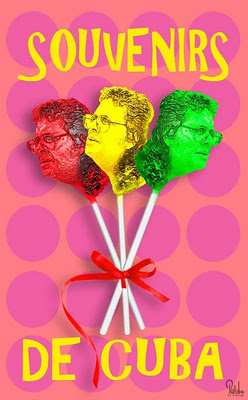
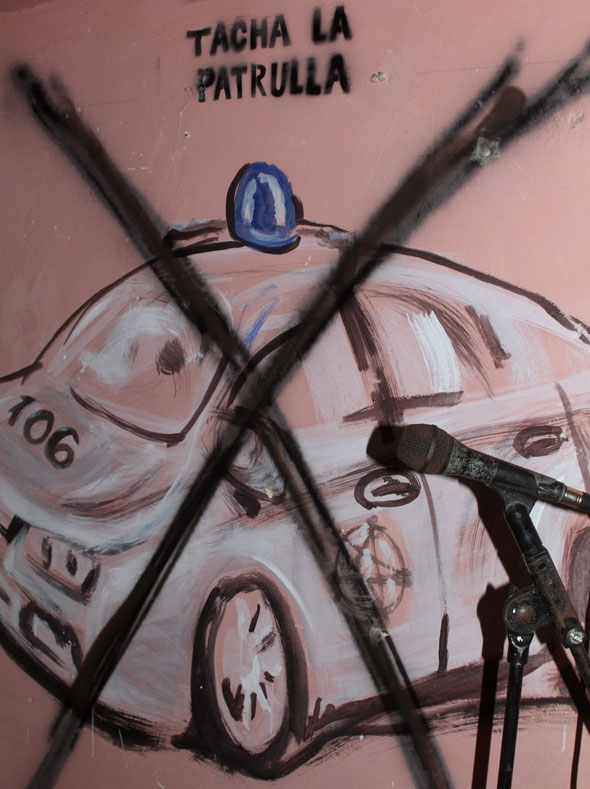


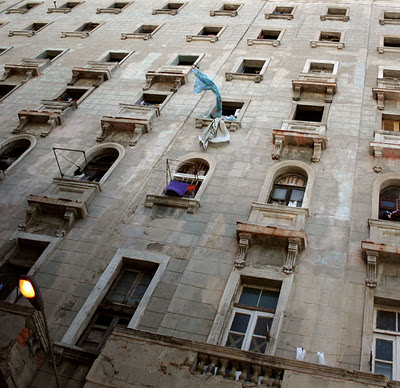
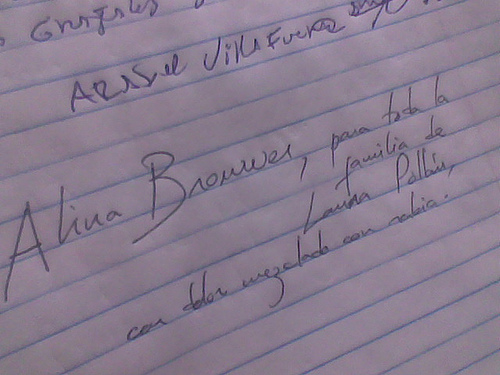













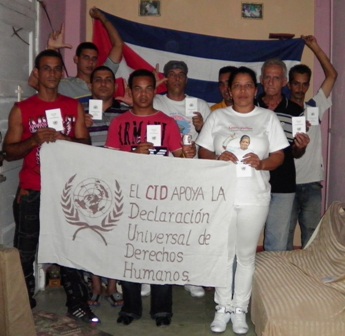
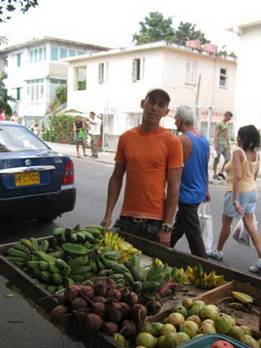
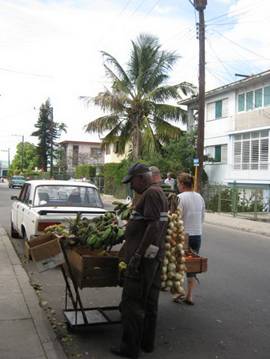
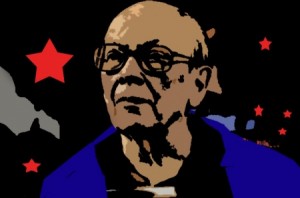

 Several months ago a friend gave me this magnificent manual entitled “Toolbox for citizen control of corruption.” Accompanied by a CD with numerous practical examples, I have read it in search of answers to a scourge that hits us harder every day. Right now we are surrounded by calls to eliminate the diversion of resources and theft in State enterprises. Thus, I have immersed myself in the pages of this book to learn what we, as individuals, can do in the face of such occurrences. Not surprisingly, I discover a word repeated over and over throughout every chapter: transparency. An effective anti-corruption campaign must be tied to exposure and denunciations in the national media. For every misappropriation a news report must offer the details, each embezzlement must face the most intense public criticism.
Several months ago a friend gave me this magnificent manual entitled “Toolbox for citizen control of corruption.” Accompanied by a CD with numerous practical examples, I have read it in search of answers to a scourge that hits us harder every day. Right now we are surrounded by calls to eliminate the diversion of resources and theft in State enterprises. Thus, I have immersed myself in the pages of this book to learn what we, as individuals, can do in the face of such occurrences. Not surprisingly, I discover a word repeated over and over throughout every chapter: transparency. An effective anti-corruption campaign must be tied to exposure and denunciations in the national media. For every misappropriation a news report must offer the details, each embezzlement must face the most intense public criticism.